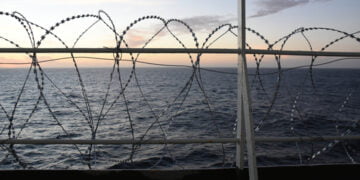Despite STCW 2010 – there is a four- year transition period
 Despite the activation of the 2010 Manila Amendments to the Standards of Training, Certification, and Watchkeeping (STCW) this January, Professional Regulation Commission (PRC) officer-in-charge, board of marine engineer Mike Marasigan announced that seafarers holding unexpired certificate of competencies are generally exempt from revalidation procedures.
Despite the activation of the 2010 Manila Amendments to the Standards of Training, Certification, and Watchkeeping (STCW) this January, Professional Regulation Commission (PRC) officer-in-charge, board of marine engineer Mike Marasigan announced that seafarers holding unexpired certificate of competencies are generally exempt from revalidation procedures.
“The 2010 Manila Amendments to the SCTW took effect last Jan. 1 but we must all remember that this clause has a four- year transition period which will end this coming Dec. 31, 2016. This means that seafarers holding unexpired certificates of competency (good until 2014 or 2015) have no need to undergo revalidation procedures mandated by the 2010 Manila Amendments. They would to wait until their certificates have reached its expiration point before undergoing revalidation,” Marasigan emphasized.
But he pointed out that senior officers with the rank of master mariners, chief mates, second engineers, are not covered by this rule as they are required to complete their management level courses (MLCs) before undergoing revalidation of their certificate of competencies.
The PRC official attributes this to the fact that Filipino seafarers, as attested by the recent European Maritime Safety Agency (EMSA) findings, are deficient in their management level education.
“So this ruling is really part of the corrective measures being asked by the EMSA,” Marasigan explained.
He also advised senior seafaring officers to “bite the bullet” in this matter and expedite their acquisition of their MLCs and other relevant training as contesting it would have dire impact on the Philippine manning industry.
“Many of our Filipino seafarers, captains and senior officers alike, have tons of experience when it comes to commanding vessels and crews but what the EMSA is asking is that we show them documents or certificates of training or competency declaring to the world that our people are really trained and have formal education in handling ships at the high seas,” the PRC official emphasized.
He also added that Filipino seafarers should not fall into the mindset that their Japanese and Norwegian employers are not really keen on such requirements and therefore should not take such matters seriously.
“The STCW is the Bible of the maritime profession. If you think you can work around it, then your thinking is wrong as there will come a time that you will be asked to submit your MLC documents for advancement purposes. If you failed to that at the specified time, then your career is good as sunk. And for the record, Filipino seafarers, especially those gunning for an officers’ badge, must allocate time and effort to complete their MLCs,” Marasigan pointed out.
He also urged engine and deck officers to comply with the new PRC ruling instructing them to take additional training modules to perfect their craft, adding that it would be more to their advantage if they complete the requirement.
Marasigan is referring to MLC Function 3 for deck officers and MLC Function 4 for senior engine people.
He added that the modules were designed, at the express request of the EMSA, so that the competency tables for the two specializations can be aligned to world standards.
As this develops, Filipino seafarers, those numbers serving abroad is estimated to be some 400,000 strong, won laurels anew when their efforts to the world economy were personally cited by newly-appointed International Maritime Organization (IMO) Secretary-General Koji Sekimizu during a visit to the Philippines early this month.
He also expressed hope that Filipino sailors competence and seamanship skills would further increase in the coming years.
The IMO chief added that Filipino seamen deserved to be lauded as they play a very valuable role in ensuring the economic well-being of the Philippines and Asia as a whole.
Noting the significant role of national shipping within the Philippine archipelago, he encouraged the industry to take appropriate action to ensure the safety of domestic navigation.
Sekimizu also urged the country’s manning industry to take steps, wherever possible, to raise public awareness of the maritime industry and its importance to the world economy.
The IMO chief also pledged to support the Philippines in all facets of its maritime development program.
He also expressed support and appreciation for the efforts made by the Philippines to provide a continuous supply of competent seafarers to the global shipping community.
He also affirmed IMO’s commitment to provide the Philippines with assistance in all aspects of its maritime development, including the fields of education, training, and certification of seafarers under the STCW Convention.
Sekimizu also spoke of his vision of a wider approach to technical co-operation, which would be based directly on the identification, through detailed country profiles, of the individual maritime needs of each developing country.
He further promised IMO’s support for the Philippines’ efforts to formulate a national maritime transport strategy, which would provide a springboard for the development of maritime clusters in the country, comprising seafaring, ship building and repair, and ship management.
Source: The Seafarer Times



























































